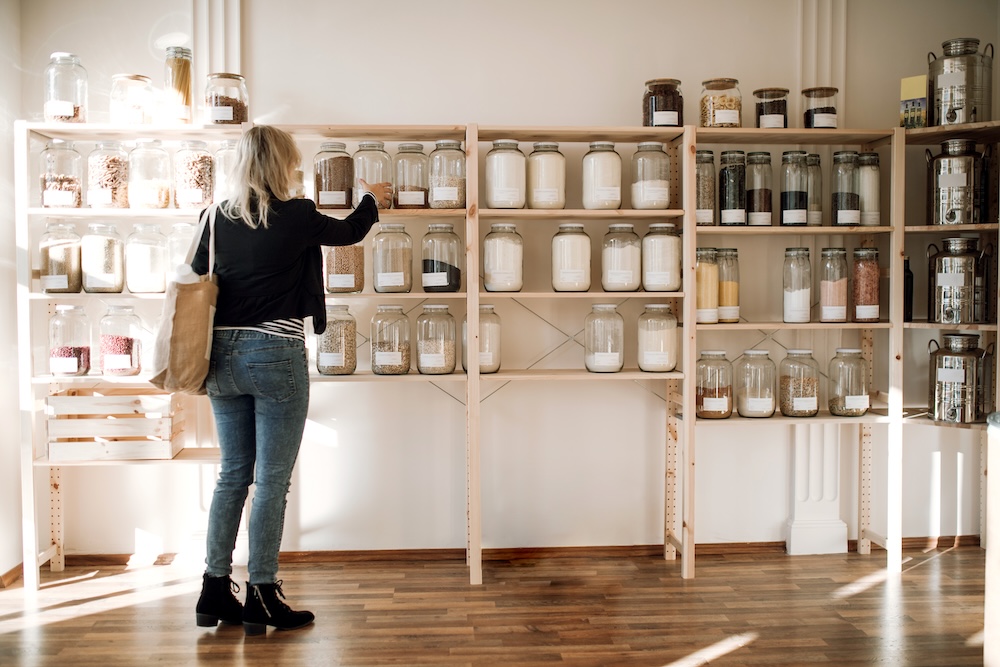The global waste crisis is growing, but so is awareness. Plastic pollution alone adds nearly 11 million metric tons to oceans each year (UNEP), while landfills continue to overflow. One meaningful way individuals can respond is by shifting everyday purchases toward zero waste products — designed to minimize or eliminate waste across their lifecycle.
Zero waste isn’t about perfection. It’s about choosing better, safer, and longer-lasting alternatives where possible — so that small changes ripple outward into big collective impact.
What Are Zero Waste Products?
Zero waste products are designed to reduce or eliminate landfill-bound waste. They are usually:
- Reusable (e.g., stainless steel bottles, cloth shopping bags)
- Compostable or biodegradable (e.g., bamboo toothbrushes, plant-based sponges)
- Refillable (e.g., bulk cleaning solutions, shampoo bars)
- Recyclable (when reuse isn’t possible)
Unlike disposable single-use items, they aim to support a circular economy, keeping resources in play for as long as possible.
Benefits of Choosing Zero Waste Products
1. Environmental Protection
Each swap chips away at waste streams. A single reusable bottle can save hundreds of plastic bottles annually, cutting emissions tied to plastic production and disposal.
2. Long-Term Cost Savings
While upfront costs may be higher, products like safety razors, cloth diapers, and refill systems pay off over time by replacing constant repurchasing.
3. Safer for Health
Many zero waste products avoid harmful chemicals (BPA, phthalates, synthetic fragrances) found in cheap disposables, lowering your exposure to toxins.
4. Ripple Effect
Conscious purchases send market signals. Every zero waste product bought over its disposable counterpart tells manufacturers and retailers: this is the future we want.
Where to Buy Zero Waste Products
Zero Waste Stores
Dedicated shops like Package Free Shop, Life Without Plastic, and The Zero Waste Store specialize in vetted products. Many now offer refill stations for soaps, cleaners, and pantry staples.
Online Retailers
- Patagonia emphasizes circularity through recycled fabrics and repair programs.
- ThredUp reduces textile waste by reselling secondhand clothing.
- Etsy features independent sellers making small-batch, handmade zero waste goods.
Local Markets & Events
Farmers markets, craft fairs, and zero waste pop-ups often feature reusable or compostable items from small makers. Buying local reduces shipping emissions and supports community economies.
Transitioning Toward Zero Waste Living
Going zero waste doesn’t happen overnight — it’s about steady swaps and building habits that stick.
- Shopping strategies: Carry reusable totes and produce bags. Buy in bulk where possible. Choose products in recyclable or minimal packaging.
- Repurpose before discarding: Glass jars become food storage, worn-out textiles can become cleaning rags, and food scraps can be composted.
- DIY when possible: Homemade cleaning sprays (vinegar, baking soda, lemon) cut chemicals and plastic waste. DIY balms, scrubs, or even toothpaste reduce reliance on packaged goods.
The point is not “zero” but less — less waste, less harm, more mindfulness.
Final Thoughts
Buying zero waste products is more than a lifestyle choice — it’s a commitment to protecting ecosystems, conserving resources, and reducing harmful waste. From reusable bottles and bamboo toothbrushes to refillable shampoos and secondhand clothing, the options are expanding rapidly.
Each purchase is a vote for the future. By supporting zero waste products and systems, we encourage businesses to innovate toward circular design — and inspire others to follow suit. Start with one swap, build momentum, and watch the ripples grow.









Reader Interactions